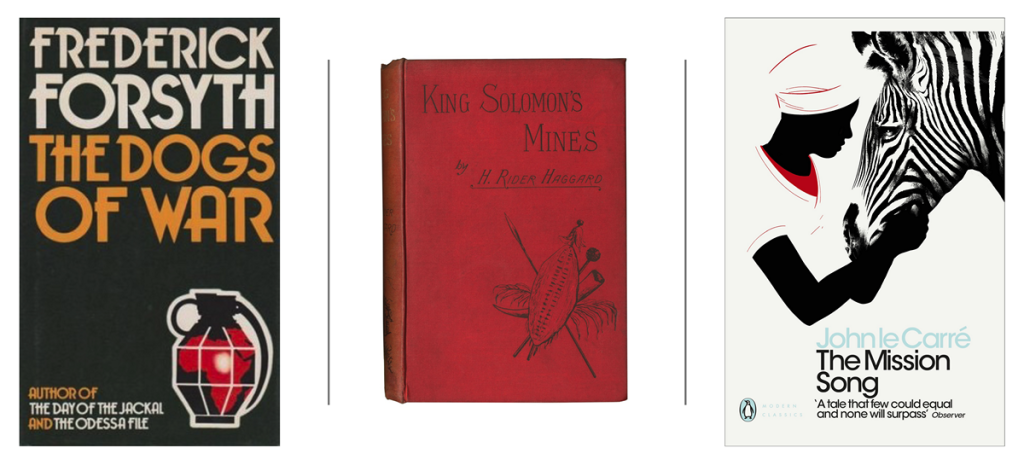U četvrtak, 31. listopada u F-406 s početkom u 10h, izv. prof. dr. sc. Eddy Kent sa Sveučilišta Alberta, Kanada, održat će gostujuće predavanje na Odsjeku za anglistiku naslovljeno: From Sea Dogs to War Dogs: The role of the mercenary in colonial and postcolonial imaginaries. Predavanje je otvoreno svim zainteresiranim studentima i nastavnicima FFRI.
Gostovanje dr. sc. Kenta omogućeno je bilateralnim sporazumom Erasmus KA171.
Abstract: As part of my new project on mercenary characters and national identities, this talk examines the role of the mercenary in three distinct phases of European resource imperialism on the African continent. It begins with H. Rider Haggard’s King Solomon’s Mines (1885), a high imperial fantasy set beyond the borders the South African diamond fields, before moving to Frederic Forsyth’s practical imagination of a diamond coup in his Cold War thriller The Dogs of War (1974) and concluding with John LeCarre’s confrontation of the modern scramble for Congolese rare earth minerals in his espionage novel The Mission Song (2006). In each of these novels, the figure of the mercenary disrupts the neat conflation of martial activity and national loyalty which animates imperial ideology. A character who is morally ambiguous and whose loyalty extends no further than the relationship of contract, the mercenary is nevertheless a necessary figure in both the establishment and the policing of imperial space. As such, my discussion of the three novels explores the ideological function of the mercenary to the ongoing manufacture of consent for the project of empire.
Bio: Eddy Kent is Associate Professor of English in the Faculty of Arts at the University of Alberta, Canada. Eddy is an expert in Victorian literature, imperialism, and cosmopolitanism. His monograph Corporate Character: Representing Imperial Power in British India, 1786-1901 (2014) studies how explicitly corporate ways of thinking and feeling influenced imperial lives in the Victorian period and his edited collection Negative Cosmopolitanism: Rethinking World Citizenship After Globalization (2017) considers the complex legacy of Enlightenment ideals when confronted by the material realities of economic globalization, including those people who have been made cosmopolitan against their will. He is a founding editor of The Floating Academy: A Victorian Studies Blog and is an advisory board member for COVE: The Collaborative Organization for Virtual Education. His research has been supported by grants from the Social Sciences and Humanities Research Council of Canada and the Kule Institute for Advanced Studies. He is currently in-between two major projects. The first is the conclusion of his second monograph, about the cultures of nineteenth-century extraction and which explores how a range of Victorian artists, scientists, and policymakers responded to the implications of Britain’s increasing reliance on minerals, metals, and fossil energy. The second and newer project examines the figure of the mercenary and mercenary culture within national, post-national, corporate, criminal, and imperial projects.

